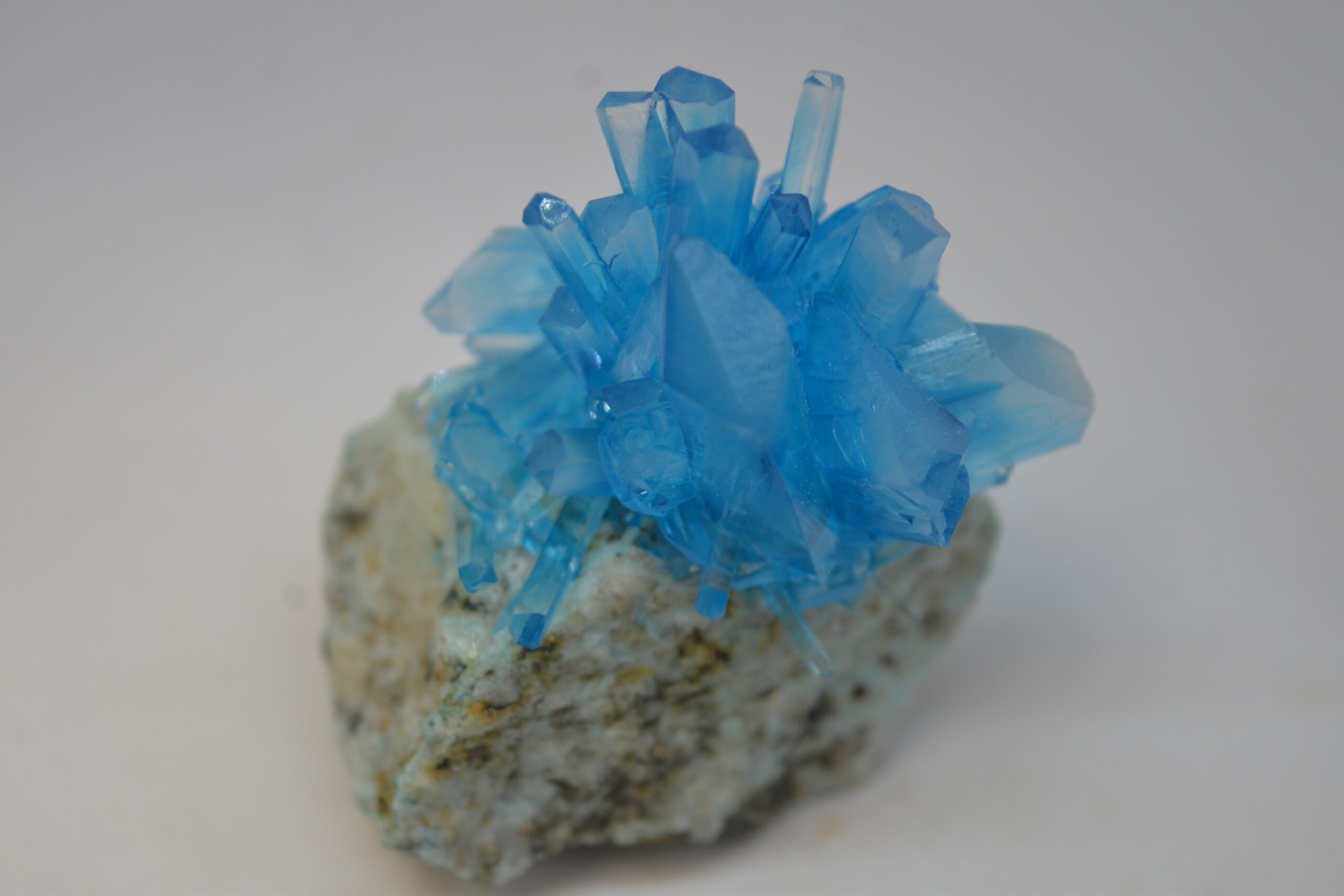
Arcanite, a mineral composed of potassium sulfate, holds a treasure trove of intriguing facts. This mineral, often found in volcanic fumaroles, plays a crucial role in various industries. Did you know arcanite is used in fertilizers to boost plant growth? Its unique properties make it valuable in agriculture, glass manufacturing, and even pyrotechnics. Arcanite's crystalline structure and solubility in water contribute to its versatility. From ancient times to modern applications, this mineral has fascinated scientists and hobbyists alike. Join us as we delve into 35 captivating facts about arcanite, uncovering its secrets and significance. Whether you're a geology enthusiast or just curious, these facts will surely spark your interest.
Key Takeaways:
- Arcanite, also known as potassium sulfate, has a rich history and diverse uses, from fertilizers to fireworks. It's a crucial ingredient for agriculture, industry, and even space exploration!
- With its non-toxic nature, environmental sustainability, and fascinating crystal form, arcanite is not just a chemical compound, but also a key player in promoting sustainable farming and environmental practices.
What is Arcanite?
Arcanite, also known as potassium sulfate, is a chemical compound with a variety of uses. It's found in fertilizers, fireworks, and even in some foods. Let's dive into some fascinating facts about this versatile substance.
-
Chemical Formula: Arcanite's chemical formula is K₂SO₄. This means it contains two potassium atoms, one sulfur atom, and four oxygen atoms.
-
Natural Occurrence: It occurs naturally in mineral form and can be found in evaporite deposits.
-
Fertilizer Use: Arcanite is widely used in fertilizers because it provides essential potassium and sulfur nutrients to plants.
-
Fireworks: This compound is used in fireworks to produce a violet flame.
-
Food Additive: In the food industry, arcanite is sometimes used as a food additive to regulate acidity.
Historical Background
Arcanite has a rich history that dates back centuries. Its discovery and usage have evolved over time.
-
Ancient Uses: Ancient civilizations used arcanite in various applications, including medicine and agriculture.
-
Discovery: The compound was first identified in the 14th century by alchemists.
-
Name Origin: The name "arcanite" comes from the Latin word "arcanum," meaning secret, reflecting its mysterious nature to early chemists.
-
Industrial Revolution: During the Industrial Revolution, arcanite's production and usage increased significantly.
-
Modern Production: Today, arcanite is produced on a large scale through chemical processes involving potassium chloride and sulfuric acid.
Chemical Properties
Understanding the chemical properties of arcanite helps in grasping its various applications.
-
Solubility: Arcanite is highly soluble in water, making it easy to use in liquid fertilizers.
-
pH Level: It has a neutral pH, which means it doesn't alter the acidity or alkalinity of the soil significantly.
-
Stability: This compound is stable under normal conditions but can decompose at high temperatures.
-
Non-Toxic: Arcanite is generally non-toxic to humans and animals, making it safe for agricultural use.
-
Reactivity: It reacts with strong acids and bases but remains inert with most other chemicals.
Agricultural Benefits
Arcanite's role in agriculture is crucial for crop production and soil health.
-
Potassium Source: It provides a vital source of potassium, which is essential for plant growth and development.
-
Sulfur Content: The sulfur in arcanite helps in the synthesis of amino acids and proteins in plants.
-
Improves Yield: Regular use of arcanite in fertilizers can lead to higher crop yields.
-
Disease Resistance: Potassium from arcanite helps plants resist diseases and pests.
-
Soil Health: It improves soil structure and water retention, benefiting overall soil health.
Industrial Applications
Beyond agriculture, arcanite has several industrial uses.
-
Glass Manufacturing: It's used in the production of glass to improve clarity and strength.
-
Textile Industry: Arcanite is used in dyeing and finishing textiles.
-
Pharmaceuticals: Some medications use arcanite as an inactive ingredient.
-
Cosmetics: It's found in some cosmetic products for its stabilizing properties.
-
Water Treatment: Arcanite is used in water treatment processes to remove impurities.
Environmental Impact
Arcanite's environmental impact is relatively low compared to other chemicals.
-
Biodegradable: It breaks down naturally in the environment without leaving harmful residues.
-
Low Toxicity: Its low toxicity means it poses minimal risk to wildlife and aquatic life.
-
Sustainable Production: Modern production methods aim to minimize environmental impact.
-
Recycling: Arcanite can be recycled from industrial waste, reducing the need for new raw materials.
-
Eco-Friendly: Its use in agriculture promotes sustainable farming practices.
Fun Facts
Here are some fun and lesser-known facts about arcanite.
-
Crystal Form: Arcanite crystals are often transparent and can be quite beautiful.
-
Historical Medicine: In ancient times, it was used as a remedy for various ailments.
-
Geological Indicator: The presence of arcanite can indicate the past existence of evaporated lakes or seas.
-
Space Exploration: Scientists have found traces of potassium sulfate on Mars, hinting at the planet's geological history.
-
Educational Tool: Arcanite is often used in chemistry classes to teach students about ionic compounds and solubility.
The Magic of Arcanite
Arcanite, a fascinating mineral, holds a treasure trove of intriguing facts. From its chemical composition of potassium and sulfate to its historical significance in agriculture, arcanite has played a pivotal role in various fields. Its unique crystal structure and solubility make it a valuable resource for fertilizers, enhancing soil fertility and crop yield. Beyond agriculture, arcanite's applications extend to the medical field, where it's used in treatments and research.
Understanding arcanite's properties and uses not only enriches our knowledge of minerals but also highlights its importance in everyday life. Whether you're a science enthusiast, a student, or just curious, arcanite offers a glimpse into the wonders of geology and chemistry. Keep exploring the world around you, and who knows what other fascinating facts you'll uncover next!
Frequently Asked Questions
Was this page helpful?
Our commitment to delivering trustworthy and engaging content is at the heart of what we do. Each fact on our site is contributed by real users like you, bringing a wealth of diverse insights and information. To ensure the highest standards of accuracy and reliability, our dedicated editors meticulously review each submission. This process guarantees that the facts we share are not only fascinating but also credible. Trust in our commitment to quality and authenticity as you explore and learn with us.


